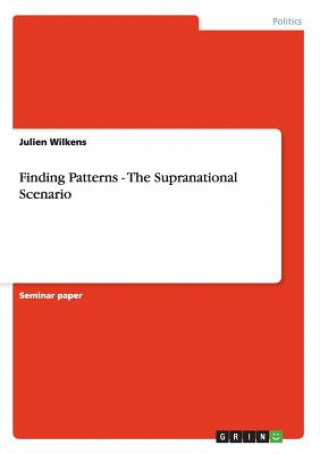
Kód: 01611746
Finding Patterns - The Supranational Scenario
Autor Julien Wilkens
Seminar paper from the year 2007 in the subject Politics - International Politics - Topic: European Union, printed single-sided, grade: 1,7, University of Mannheim, 10 entries in the bibliography, language: English, abstract: When ... celý popis
- Jazyk:
 Angličtina
Angličtina - Vazba: Brožovaná
- Počet stran: 40
Nakladatelství: Grin Publishing, 2008
- Více informací o knize

Mohlo by se vám také líbit
-
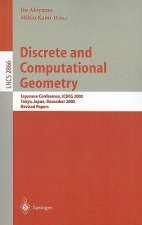
Discrete and Computational Geometry
1681 Kč -

Treasury of Heroes and Heroines A Record of High Endeavour and Strange Adventure from 500 B.C. to 1920 A.D.
1143 Kč -

Cognition and Intelligence
1488 Kč -

First Part of the Royal Commentaries of the Yncas
1521 Kč -

Gladys Aylward
254 Kč -

Authentic Designs from the American Arts and Crafts Movement
478 Kč -

Schoßgebete
273 Kč
Dárkový poukaz: Radost zaručena
- Darujte poukaz v libovolné hodnotě a my se postaráme o zbytek.
- Poukaz se vztahuje na celou naši nabídku.
- Elektronický poukaz vytisknete z e-mailu a můžete ihned darovat.
- Platnost poukazu je 12 měsíců od data vystavení.
Více informací o knize Finding Patterns - The Supranational Scenario
Nákupem získáte 117 bodů
 Anotace knihy
Anotace knihy
Seminar paper from the year 2007 in the subject Politics - International Politics - Topic: European Union, printed single-sided, grade: 1,7, University of Mannheim, 10 entries in the bibliography, language: English, abstract: When studying the European Union, one will find references to the supranational scenario quite soon. In current literature, there is a trend to think about an integration dimension in the European Union. According to this idea, the Status Quo is located at one end of the integration continua, the supranational actors, that is, the Commission and the European Parliament, at the other one. The Status Quo is assumed to be formed under the Luxemburg Compromise and therefore to be at the point of the least integrationist member state. Contrary to this, the Commission and the European Parliament are more pro-integrationist than all member states of the Council of Ministers. One of the most well-know theorists in the analysis on European Union in an institutionalist way is George Tsebelis. My research question will be: Is there empirical evidence that one can easily assume that the European Parliament and the Commission are (a) located closely together in their preferences for concrete policies? Are (b) these positions generally opposite from the Status Quo? And are there (c) some factors which influence the likelihood that EP and EC will be positioned more closely together and at the same time far away from the Status Quo? Does (d) the supranational scenario influence the outcome?The quantitative check of Tsebelis assumption will be made with the Decision-Making in the European Union Dataset. This database includes the position, the salience and the power of all (for the moment) 15 members of the Council, the outcome after the bargaining process, the reference point, and the two relevant actors in my study: the European Parliament and the Commission. To proceed, I will use the statistic program Stata 9.1, and run statistical tests on the data. The goal of this paper is to provide further insights into the positioning of the Parliament and the Commission and to see if the supranational scenario survives a quantitative analysis. As my goal is to find patterns, I will emphasize on an explorative study, without, however, undermining the principles of a social inquiry.
 Parametry knihy
Parametry knihy
Zařazení knihy Knihy v angličtině Society & social sciences Politics & government
1174 Kč
- Plný název: Finding Patterns - The Supranational Scenario
- Autor: Julien Wilkens
- Jazyk:
 Angličtina
Angličtina - Vazba: Brožovaná
- Počet stran: 40
- EAN: 9783640114726
- ISBN: 3640114728
- ID: 01611746
- Nakladatelství: Grin Publishing
- Hmotnost: 64 g
- Rozměry: 210 × 148 × 4 mm
- Datum vydání: 30. July 2008
Oblíbené z jiného soudku
-

Case Against the Sexual Revolution
392 Kč -

Wretched of the Earth
276 Kč -

The Trigger
586 Kč -

State and Revolution
117 Kč -

Accidental Superpower
455 Kč -

My Autobiography
306 Kč -

Fight Like A Girl
276 Kč -

Against Civilization
389 Kč -

The Lords of Poverty: The Power, Prestige, and Corruption of the International Aid Business
324 Kč -
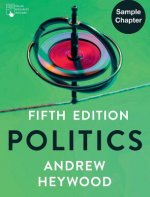
Politics
1301 Kč -

Cold and the Dark
482 Kč -

Voices from the Contemporary Japanese Feminist Movement
1343 Kč -
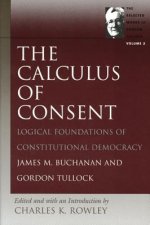
Calculus of Consent
403 Kč -

Mafia Monograph, Part 1 of 4
532 Kč -

Israel Lobby and U. S. Foreign Policy
710 Kč -

Harm Reduction or Harm Maintenance
781 Kč -

Entropy Of Capitalism
1124 Kč -

Red Petrograd
567 Kč -

Troubled Constitutional Future
708 Kč -

Lineages of Modernity - A History of Humanity from the Stone Age to Homo Americanus
1098 Kč -

Inventing Vietnam
801 Kč -

City of Quartz
395 Kč -

Flash Boys - A Wall Street Revolt
258 Kč -
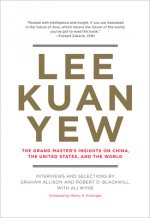
Lee Kuan Yew
501 Kč -

Giants
494 Kč -

Children of the Matrix
454 Kč -

Queer Encounters with Communist Power
611 Kč -

Identity
316 Kč -

Deep State
386 Kč -

Next Decade
434 Kč -

Return of Marco Polo's World
399 Kč -

Force of Reason
493 Kč -

STRANGE DEATH OF EUROPE
473 Kč -

Political Science For Dummies
447 Kč -

Yoga of Eating
287 Kč -

Political Brain
357 Kč -

GREEN BOOK
196 Kč -

Politics: A Very Short Introduction
249 Kč -

Out of the Wreckage
482 Kč -

No Turning Back
303 Kč -

Urban Warfare in the Twenty-First Century
673 Kč -

Trade Marketing, Category Management, and Shopper Marketing
2257 Kč -

Spirit of the Laws
598 Kč -

USAF Military Working Dog Program - Scholar's Choice Edition
725 Kč -
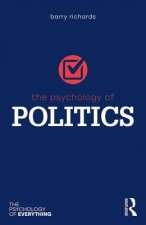
Psychology of Politics
555 Kč -

Report From Iron Mountain
366 Kč -

Lies My Teacher Told Me
559 Kč -

Liberalism and Its Critics
854 Kč -

Scramble for Europe, Young Africa on its way to the Old Continent
446 Kč
Osobní odběr Praha, Brno a 12903 dalších
Copyright ©2008-24 nejlevnejsi-knihy.cz Všechna práva vyhrazenaSoukromíCookies



 Vrácení do měsíce
Vrácení do měsíce 571 999 099 (8-15.30h)
571 999 099 (8-15.30h)